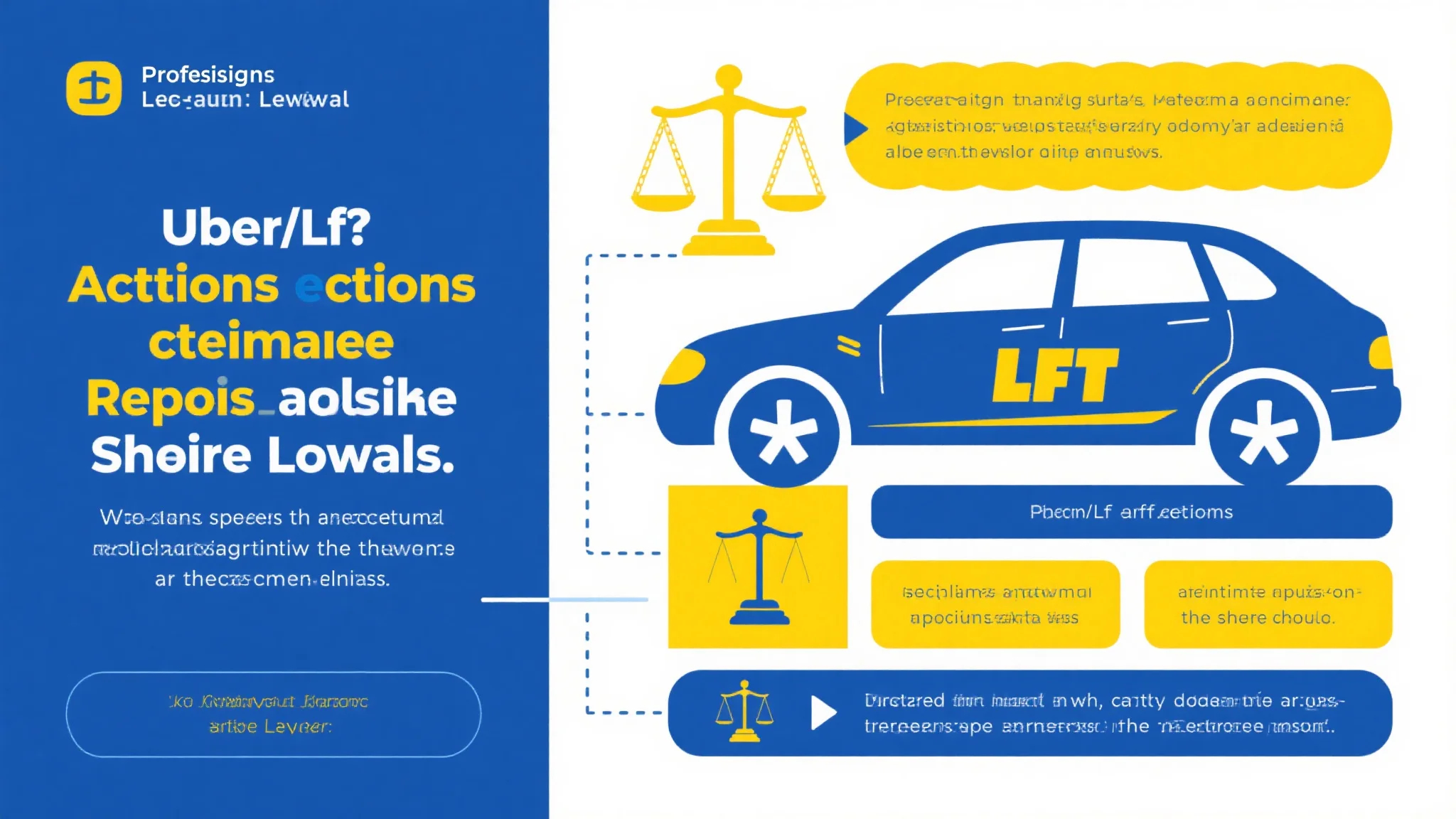Car accidents happen when you least expect them, and the aftermath can be overwhelming. Between dealing with injuries, vehicle damage, and insurance companies, many accident victims find themselves wondering whether they need professional help. Understanding when to hire an auto accident attorney can make the difference between receiving fair compensation and being left with mounting bills and inadequate settlements.
The decision to seek legal representation isn’t always straightforward. Many people assume that minor accidents don’t warrant attorney involvement, while others believe that having insurance coverage means they’re fully protected. The reality is far more complex, and there are specific thresholds and circumstances that should trigger your consideration of professional legal help.
Insurance companies are businesses designed to minimize payouts while maximizing profits. They employ teams of adjusters, investigators, and lawyers whose primary goal is to settle claims for as little as possible. When you’re dealing with the physical and emotional trauma of an accident, you’re at a significant disadvantage in these negotiations. This is where understanding the critical thresholds for attorney involvement becomes essential for protecting your rights and financial future.
Understanding Insurance Claim Complexity and When Professional Help Becomes Essential
The complexity of your insurance claim often determines whether you need an auto accident attorney. Simple fender-benders with minimal damage and no injuries might seem straightforward, but even these cases can become complicated quickly. Insurance companies often use sophisticated tactics to minimize settlements, even for seemingly minor accidents. They might question the extent of vehicle damage, dispute repair estimates, or challenge the circumstances of the accident itself.
When property damage exceeds $5,000, the stakes become significantly higher. At this threshold, insurance companies typically assign more experienced adjusters to handle claims, and they’re more likely to employ aggressive tactics to reduce payouts. These adjusters are trained to find any possible reason to deny or minimize your claim. They might argue that pre-existing damage contributed to the total loss, question whether all repairs are necessary, or suggest that you should accept a lower settlement because fighting for more would be too costly and time-consuming.
The situation becomes even more complex when multiple vehicles are involved or when there’s disagreement about fault. In multi-vehicle accidents, each insurance company will try to shift blame to other drivers to minimize their own liability. Without proper legal representation, you might find yourself caught in the middle of these disputes, potentially being held responsible for damages you didn’t cause. Insurance companies often use delay tactics in these situations, hoping that financial pressure will force you to accept inadequate settlements.
Another critical factor is the involvement of commercial vehicles or government entities. If your accident involved a delivery truck, taxi, rideshare vehicle, or government vehicle, the legal landscape becomes significantly more complex. These cases often involve multiple insurance policies, commercial liability coverage, and specific regulations that don’t apply to typical passenger vehicle accidents. Commercial insurance companies are particularly aggressive in defending claims because the potential payouts are much higher. They often have teams of lawyers on retainer specifically to handle accident claims, giving them a significant advantage over unrepresented individuals.
The timing of when you contact an insurance claim lawyer can also impact your case significantly. Many people make the mistake of trying to handle initial negotiations themselves, only to realize later that they’ve made statements or agreements that hurt their position. Insurance adjusters are trained to ask leading questions designed to get you to admit fault or minimize your injuries. They might ask seemingly innocent questions like “How are you feeling?” hoping you’ll say “fine” even if you’re experiencing pain. These recorded statements can be used against you later if your injuries prove more serious than initially apparent.
Technology has also changed the claims process in ways that can disadvantage accident victims. Insurance companies now use sophisticated software to evaluate claims, often resulting in lowball initial offers. These programs don’t account for the unique circumstances of your case or the full extent of your damages. They’re designed to generate the lowest possible settlement offer that might be accepted. Without legal expertise, you might not realize that these initial offers are often far below what your claim is actually worth.
The complexity increases exponentially when dealing with uninsured or underinsured motorists. If the at-fault driver doesn’t have adequate insurance coverage, you’ll need to pursue compensation through your own uninsured/underinsured motorist coverage. This creates a conflict of interest where your own insurance company is responsible for paying your claim. They have a financial incentive to minimize your settlement, even though you’ve been paying premiums for this exact protection. These cases often require sophisticated legal strategies to ensure you receive fair compensation from your own insurer.

Medical Injury Thresholds That Demand Legal Intervention
Medical injuries from car accidents create some of the most critical thresholds for determining when you need an auto accident attorney. Even seemingly minor injuries can have long-term consequences that aren’t immediately apparent. Soft tissue injuries, such as whiplash, often don’t show symptoms for hours or even days after an accident. By the time you realize you’re injured, you may have already given statements to insurance companies suggesting you weren’t hurt.
Any injury requiring emergency room treatment should trigger serious consideration of legal representation. Emergency room visits typically cost thousands of dollars, and this is often just the beginning of your medical expenses. Insurance companies frequently challenge emergency room treatments, arguing that they were unnecessary or excessive. They might claim that you could have been treated at an urgent care facility for less money, or that some of the tests and procedures weren’t medically necessary. Without proper legal representation, you might find yourself responsible for medical bills that should be covered by the at-fault driver’s insurance.
The threshold becomes even more critical when injuries require ongoing treatment. Physical therapy, chiropractic care, specialist consultations, and follow-up procedures can quickly accumulate tens of thousands of dollars in medical expenses. Insurance companies often try to cut off medical treatment prematurely, arguing that you’ve reached “maximum medical improvement” even when your doctors recommend continued care. They might also question the necessity of certain treatments or try to attribute your injuries to pre-existing conditions.
Diagnostic imaging such as MRIs, CT scans, and X-rays often reveal injuries that weren’t initially apparent. These tests can cost thousands of dollars each, and insurance companies frequently challenge their necessity. They might argue that the imaging was ordered too quickly after the accident, or that the findings don’t correlate with the mechanism of injury. An experienced insurance claim lawyer understands how to work with medical providers to document the necessity of these tests and their relationship to your accident.
Lost wages represent another critical threshold that often necessitates legal intervention. If your injuries prevent you from working for more than a few days, the financial impact can be substantial. Insurance companies typically require extensive documentation to verify lost wages, including employment records, tax returns, and physician statements regarding your inability to work. They often challenge the duration of time off work, arguing that you could have returned to light duty or modified work arrangements sooner than your doctor recommended.
The situation becomes more complex for self-employed individuals, commission-based workers, or those with irregular income. Insurance companies often lowball settlements for these individuals because their lost wages are harder to calculate and verify. They might use your lowest earning periods to calculate average income, or argue that you would have had slow periods anyway. Professional legal representation becomes essential to properly document and present lost income claims for non-traditional employment situations.
Pain and suffering damages represent one of the most subjective and challenging aspects of injury claims. Insurance companies often use computer programs to calculate pain and suffering based on medical expenses, but these calculations rarely account for the true impact of injuries on your daily life. They don’t consider how injuries affect your ability to enjoy hobbies, participate in family activities, or maintain relationships. An experienced attorney knows how to document and present these intangible damages to maximize your compensation.
Future medical expenses present another complex threshold that requires legal expertise. Some injuries require ongoing treatment, future surgeries, or long-term care. Insurance companies prefer to settle claims quickly and avoid responsibility for future medical costs. They might pressure you to accept a settlement before the full extent of your injuries is known, or argue that future complications are unrelated to the accident. Proper legal representation ensures that settlements account for reasonably anticipated future medical needs based on medical expert opinions.
Financial and Legal Complexity Indicators That Require Professional Advocacy
The financial stakes of your accident claim create important thresholds for determining when you need an auto accident attorney. When total damages exceed $25,000, insurance companies typically assign senior adjusters and may involve their legal departments in settlement negotiations. At this level, they’re more likely to employ aggressive tactics and sophisticated strategies to minimize payouts. The complexity of calculating damages also increases significantly, requiring expertise in areas such as lost earning capacity, future medical costs, and life care planning.
Policy limits create another critical threshold that often requires legal intervention. If your damages exceed the at-fault driver’s insurance coverage, you’ll need to explore additional sources of compensation. This might include pursuing the driver’s personal assets, seeking coverage from other insurance policies, or filing claims against additional parties who might share responsibility for the accident. These cases require sophisticated legal strategies and thorough investigation to identify all potential sources of recovery.
The involvement of multiple insurance companies creates complexity that almost always requires professional legal representation. When several vehicles are involved in an accident, each insurance company will try to minimize their own liability while maximizing the responsibility of others. They might engage in lengthy disputes about fault allocation, leaving you caught in the middle without compensation while they sort out their differences. An experienced attorney can navigate these multi-party negotiations and ensure that delays in determining fault don’t prevent you from receiving timely compensation.
Subrogation issues represent another complex area that often requires legal expertise. If your health insurance or workers’ compensation coverage pays for accident-related medical expenses, they typically have the right to recover these payments from any settlement you receive. However, the amount they can recover is often negotiable, and there are specific procedures that must be followed. Insurance companies sometimes try to use subrogation claims to reduce their settlement offers, arguing that you’ll have to pay back most of the money anyway. An experienced insurance claim lawyer can often negotiate significant reductions in subrogation claims, increasing your net recovery.
Statute of limitations issues create time-sensitive thresholds that require immediate legal attention. Each state has specific deadlines for filing lawsuits related to car accidents, typically ranging from one to six years. However, there are often shorter deadlines for filing claims against government entities, and certain circumstances can extend or shorten these deadlines. Missing a statute of limitations deadline can completely bar your right to compensation, regardless of how strong your case might be. Insurance companies are aware of these deadlines and sometimes use delay tactics hoping you’ll miss critical filing deadlines.
The complexity of proving damages often requires professional legal assistance, especially for non-economic damages such as pain and suffering, emotional distress, and loss of enjoyment of life. Insurance companies typically use multiplier formulas based on medical expenses to calculate these damages, but these formulas often undervalue the true impact of injuries on your life. Experienced attorneys know how to present evidence of non-economic damages through medical expert testimony, life care planners, vocational rehabilitation experts, and other specialists who can quantify the full impact of your injuries.
Discovery and investigation requirements often exceed what individuals can handle on their own. Serious accident cases may require accident reconstruction experts, medical experts, economic experts, and other specialists to properly develop and present your case. These experts can be expensive, but they’re often essential for maximizing compensation in significant cases. Insurance companies have access to their own experts and sophisticated investigation resources. Without comparable expertise on your side, you’re at a significant disadvantage in negotiations.
The psychological impact of dealing with insurance companies and legal proceedings can be overwhelming for accident victims who are already dealing with injuries and financial stress. Insurance adjusters are trained negotiators who deal with claims every day, while most accident victims have never been through this process before. The emotional toll of fighting for fair compensation while trying to recover from injuries can be substantial. Having professional representation allows you to focus on your recovery while experienced advocates handle the legal and insurance aspects of your case.
Settlement timing represents another critical factor that often requires legal expertise. Insurance companies often pressure accident victims to settle quickly, before the full extent of injuries and damages is known. They might make settlement offers that seem reasonable initially but are actually far below what the claim is worth. Once you accept a settlement, you typically give up the right to seek additional compensation, even if your injuries prove more serious than initially apparent. An experienced attorney can advise you on appropriate timing for settlement negotiations and ensure that any settlement adequately compensates you for all current and future damages related to your accident.



